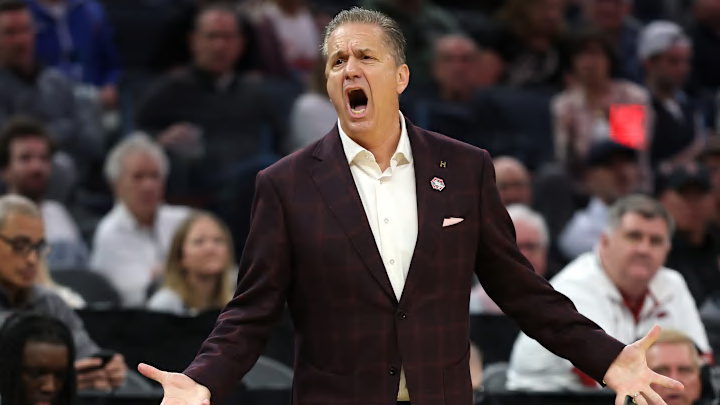John Calipari endorses Trump’s executive order—fans fire back
John Calipari’s words used to echo as gospel in the Bluegrass, now they do the same down in Fayetteville. And like most things he says, they’re setting social media ablaze.
The former Kentucky basketball coach—now at Arkansas—posted a message to X praising former President Donald Trump’s new executive order targeting pay-to-play payments and protecting women’s sports. Calipari’s support drew an immediate and furious backlash from fans and parents of top recruits.
“I am encouraged by the President’s executive order today,” Calipari wrote. “This is an important step forward and will create opportunity for meaningful dialogue… I am encouraged by President Trump’s executive order and the dialogue that will be created to protect and grow life-changing opportunities for young people.”
That didn’t sit well with Big Blue Nation or the broader college basketball community.
Jarrett Lewis, father of 2025 guard Acaden Lewis, who decommitted from Kentucky tweeted: “SMH. How many Executive Orders have you supported that will Adversely Impact Coaches Salaries?”
SMH. How many Executive Orders have you Supported that will Adversely Impact Coaches Salaries? pic.twitter.com/iLPfwO67gN
— Jarett R. Lewis (@JarettRLewis1) July 25, 2025
Another user posted a viral gif of Mr. Rogers putting on a clown mask, signifying that Calipari is all about it when it’s time to ‘protect opportunities’ but he’s making $7 million a year.
The main critique: hypocrisy. Calipari earned over $86 million during his Kentucky tenure but appears ready to limit how athletes can earn through collectives.
While Calipari may be trying to toe a line—supporting NIL while condemning third-party payments—his stance may alienate the very players he’s trying to recruit. Today’s athlete understands branding, money, and power, and they expect their coaches to back them, not block the bag.
Meanwhile, some Arkansas fans welcomed the statement, praising Calipari for his emphasis on education and long-term impact.
It is a very complicated issue, and there are a lot of emotional responses. What do you believe is the right way to handle NIL and collectives?
